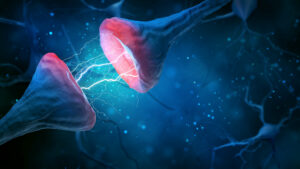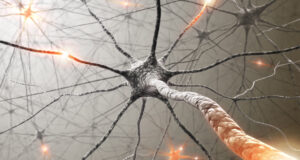How Psilocybin Alters Brain Function: A Fascinating Journey into the Psychedelic Realm
- November 20, 2023
- 3:43 am

Notable Elements
Psilocybin Overview: Psilocybin is a natural psychedelic compound found in “magic mushrooms.” It converts into psilocin and interacts with serotonin receptors in the brain.
Brain Receptor Interaction: Psilocybin primarily affects serotonin receptors, particularly the 5-HT2A subtype, leading to changes in mood, perception, and cognition.
Perception and Cognition: Psilocybin can enhance perception, alter the sense of time, induce synesthesia, and promote creative thinking and ego dissolution.
Impact on Neural Pathways: Psilocybin increases connectivity between brain regions and affects synaptic plasticity, potentially stimulating new brain cell growth.
Serotonin and Mood Regulation: Psilocybin influences serotonin levels, which play a crucial role in mood regulation.
Psilocybin-Assisted Therapy: It shows promise in treating depression, anxiety disorders, addiction, and end-of-life distress when used in therapeutic settings.
Side Effects and Precautions: Users should be aware of potential psychological and physiological effects, practice caution, and consider legality and medical history.
Legal Status: The legal status of psilocybin varies by location, and users should be informed about local regulations.
Supervision and Setting: A positive mindset and a safe, comfortable environment are crucial for a positive psilocybin experience.
Individual Variability: Effects can vary widely among individuals and should be approached with caution and professional guidance.
Intoduction to Psilocybin
Psilocybin is a naturally occurring psychedelic compound found in certain species of mushrooms, commonly known as “magic mushrooms.” When ingested— Psilocybin converts into psilocin, which binds to serotonin receptors in the brain.
How does Psilocybin interact with Brain Receptors?
Psilocybin primarily interacts with serotonin receptors, particularly the 5-HT2A subtype. This receptor involves various physiological and cognitive processes, including mood regulation, sensory perception, and cognition. When psilocybin binds to 5-HT2A receptors, it stimulates these receptors and alters normal brain functioning.
The exact mechanisms by which produce psychedelic effects are not fully understood. However, it is believed that the stimulation of 5-HT2A receptors leads to changes in neural activity, especially in brain areas involved in emotion processing and self-awareness. These changes are said to contribute to the altered perception, hallucinations, and changes in thinking and emotions that people experience under psilocybin influence.
In addition to 5-HT2A receptors, it interacts with other serotonin receptors, such as 5-HT1A and 5-HT1B receptors. These receptors are involved in mood regulation and the release of serotonin, a neurotransmitter associated with feelings of well-being and happiness. By modulating the activity of these receptors, psilocybin may have effects on mood and emotional states.
Moreover, it affects the brain’s default mode network (DMN). The DMN is a network of brain regions responsible for self-reflection, introspection, and daydreaming. Psilocybin reduces the activity in this network, resulting in a decrease in self-referential thoughts and an increase in the sense of connectedness and unity with the environment.

Psilocybin’s Influence on Perception and Cognition
Here are some ways psilocybin influences perception and cognition:
- Enhanced perception: Psilocybin can enhance visual effects, such as intensifying colors, patterns, and shapes. Users often report experiencing a more vibrant and detailed perception of the world with increased sensitivity to sounds, textures, and tastes.
- Altered sense of time:Psilocybin can distort the perception of time, making it feel as though time is passing either faster or slower than it is. It may lead to a feeling of timelessness or a sense of the present moment.
- Synesthesia:Some users report experiencing synesthesia, a phenomenon where different sensory modalities become interconnected. For example, they may see sounds or hear colors. This blending of senses can create novel and unique perceptual experiences.
- Ego dissolution:Psilocybin induces ego dissolution, a temporary loss of the sense of self or ego. It leads to a sense of interconnectedness with others or the universe, blurring the boundaries between ourselves and the external world.
- Increased creative thinking: Psilocybin enhances creativity and divergent thinking. It can promote new ideas, associations, and connections between seemingly unrelated concepts.
- Altered patterns of thinking:Psilocybin can induce changes in cognition, such as increasing introspection, self-reflection, and insightfulness. It can also create a sense of enhanced connectedness to one’s thoughts and emotions, allowing for a deeper understanding of oneself.
- Altered states of consciousness: Psilocybin induces varied altered states of consciousness, ranging from mild changes in perception to profound mystical experiences. A sense of transcendence, ineffability, and interconnectedness characterize these experiences.
Psilocybin’s Impact on Neural Pathways and Synaptic Plasticity
One of the pathways psilocybin impacts neural pathways is by increasing the connectivity and communication between different brain regions. Functional magnetic resonance imaging (fMRI) studies have shown that psilocybin leads to increased global connectivity and a breakdown of the typical segregation between brain regions. This increased connectivity may underlie the experience of the dissolution of ego boundaries and the sense of interconnectedness often reported during a psilocybin trip.
Psilocybin also affects synaptic plasticity, which is the ability of synapses (connections between neurons) to change their strength and efficiency in response to neural activity. Animal studies have shown that psilocybin promotes neurogenesis, the formation of new neurons, particularly in the hippocampus, which is involved in memory and learning. Thus, psilocybin might improve memory and learning.
It has also been shown that psilocybin enhances synaptic connections and increases the complexity of neural networks by promoting dendrite growth and branching.

Serotonin and Mood Regulation
Psilocybin is classified as a tryptamine alkaloid and is structurally similar to serotonin, the neurotransmitter involved in regulating mood, among other functions. The activation of serotonin receptors by psilocin leads to altered perception, mood, thought patterns, and sensory experiences typically associated with psychedelic experiences.
Several brain regions are stimulated by psilocybin by serotonin receptors, resulting in increased synaptic plasticity and changes in neuronal connectivity. Mood changes may also result from these changes in neural pathways.
Research has found that psilocybin enhances the release of serotonin in the brain, which has direct effects on mood regulation. However, it is still unclear how psilocybin enhances serotonin levels in the brain.
Psilocybin’s Potential for Stimulating New Brain Cell Growth
Psilocybin yields profound changes in perception, consciousness, and cognition. Recent research suggests that psilocybin may also have the potential to stimulate new brain cell growth, a process known as neurogenesis.
Neurogenesis is essential for learning, memory formation, and overall brain health. The process occurs throughout life in specific brain regions, such as the hippocampus and the subventricular zone. Previously, neurogenesis was thought to occur predominantly during childhood and decline in adulthood.
A study published in the Journal of Psychopharmacology reported that psilocybin increased the expression of a protein called brain-derived neurotrophic factor (BDNF). BDNF plays a crucial role in neuron growth, development, and maintenance.
It is worth noting that the existing research on psilocybin and neurogenesis is relatively limited— and the potential benefits of psilocybin-induced neurogenesis are still under investigation.
Also Read : Psilocybin vs. LSD: A Comprehensive Comparison
Psilocybin-Assisted Therapy for Mental Health Disorders
The psychoactive effects of psilocybin can promote introspection, increase emotional openness, and potentially aid in breaking through rigid thought patterns. When utilized in a therapeutic setting, psilocybin-assisted therapy can be beneficial for a range of mental health disorders, including:
- Depression:Psilocybin has shown promising results in reducing depressive symptoms. It can provide individuals with a fresh perspective on their emotions and help them process deep-seated trauma or negative thought patterns.
- Anxiety Disorders: Psilocybin-assisted therapy has demonstrated potential for reducing anxiety related to conditions such as generalized anxiety disorder, social anxiety disorder, and post-traumatic stress disorder (PTSD).
- Addiction:Psilocybin-assisted therapy has been studied as a potential treatment for addiction, particularly for substances like alcohol and tobacco. It can help individuals gain new insights into their addictive patterns and promote self-reflection and motivation for change.
- End-of-Life Distress:Psilocybin-assisted therapy has also been explored as a means to alleviate existential anxiety and improve the quality of life for individuals facing terminal illness or experiencing end-of-life distress.
Understanding the Potential Side Effects and Precautions
While psilocybin has been studied for its therapeutic potential, it is important to be aware of the potential side effects and take necessary precautions.
Psychological Effects:
– Positive effects: Psilocybin has been reported to induce positive mood changes, enhanced creativity, and increased introspection.
– Negative effects: Psilocybin can also lead to anxiety, paranoia, confusion, and panic reactions. These effects may be more likely to occur in individuals prone to mental health conditions like schizophrenia or those in a vulnerable mental state.
Physiological Effects:
– Nausea and vomiting: Psilocybin mushrooms can cause gastrointestinal distress, including nausea and vomiting. Consuming them with food or ginger may help reduce these effects.
– Heart rate and blood pressure increase: Psilocybin can cause transient increases in heart rate and blood pressure. Individuals with cardiovascular issues should be cautious.
Precautions:
– Set and setting: The mindset and physical environment during a psilocybin experience can influence the effects. A comfortable, safe, and supportive setting is recommended, along with a positive mindset.
– Supervision: It is advisable to have a trusted sober individual present during the experience to provide support and ensure safety.
– Personal and family medical history: Individuals with a personal or family history of mental health conditions, such as psychosis or bipolar disorder, should exercise caution or avoid psilocybin use altogether.
– Medications: Some medications, particularly antidepressants and monoamine oxidase inhibitors (MAOIs), can interact with psilocybin, leading to negative effects or even dangerous interactions. It is important to consult a healthcare professional before combining medications with psilocybin.
Legality:
Psilocybin’s legal status differs between nations and jurisdictions. In some places, it is classified as a controlled substance, and possession, cultivation, or distribution is illegal.
Several countries, regions, and cities have decriminalized or are in the process of decriminalizing psilocybin, often for medical or research purposes. Some countries, like Brazil and Jamaica, have legalized the religious or spiritual use of psilocybin-containing mushrooms. It is essential to research and understand the legal status of psilocybin in your specific location before considering its use.
**TO BE NOTED- It’s important to note that the effects of psilocybin can vary widely depending on the individual, dose, set (mindset), and setting in which it is consumed. Additionally, the use of psilocybin should always be approached with caution and under the guidance of trained professionals, as it can also induce negative experiences in some individuals.

Hi! I’m Jacob Hawthorne, a passionate medical student dedicated to exploring the fascinating world of psychedelics, particularly magic mushrooms (commonly known as shrooms). With a deep interest in their therapeutic potential and profound effects on the human mind, I aim to provide accurate and evidence-based information about shrooms in the Canadian context.
